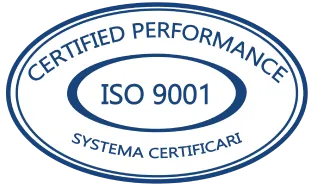You run complex processes across ERP, CRM, supply chain, and ticketing systems. They look fine on dashboards, yet working capital is tied up, orders miss promised dates, and automation stalls. This article explains what Celonis is and how it turns raw event data into a live, actionable map of how work actually flows, then helps you remove friction with targeted automation.
We cover the core of process mining, Celonis product capabilities, practical automation use cases, and how to evaluate it against other tools. If you are exploring Celonis optimization to drive measurable ROI, use the step by step guidance and comparisons below to shape your roadmap.
What is Celonis?
Celonis is a process intelligence and execution platform that discovers how your processes really run from system event data, identifies bottlenecks and value opportunities, and orchestrates actions to fix them in real time. It leverages process mining and object centric process mining to reconstruct end to end flows across systems like SAP, Oracle, Salesforce, and ServiceNow, then recommends or triggers improvements where they create the most impact. See the vendor overview for definitions and platform scope on the Celonis site.
Celonis role in automation
Celonis does not replace your RPA bots, workflow engines, or ERP automation. It tells you precisely where to apply them, and it routes the right action at the right moment. Think of it as the decision and orchestration layer for automation, driven by real process behavior, not by static flowcharts.
Value comes from a closed loop: discover, decide, act, and learn.
- Discover. Connect to event data, reconstruct the as is process, quantify friction like rework, late approvals, or manual touches.
- Decide. Prioritize opportunities with impact models, for example, working capital released, on time delivery lift, or cost to serve reduction.
- Act. Trigger automations via Celonis action flows, native adapters, or hand off to RPA, workflow, or human in the loop tasks.
- Learn. Monitor post change performance, adapt thresholds and rules, and scale improvements to other plants, regions, or business units.
Examples you can deploy quickly:
- Order to cash, auto prioritize credit holds and prevent late deliveries by escalating at risk orders before promise breaks.
- Procure to pay, auto correct price and quantity mismatches, route non compliant spend to the right buying channel, and reduce duplicate invoices.
- Inventory and production, detect material shortages, expedite critical components, and rebalance safety stocks based on real lead time variance.
- Customer support, flag cases likely to breach SLA and trigger knowledge article suggestions or auto reassign to skilled agents.
What is process mining?
Process mining is a data driven method that uses system event logs to reconstruct, visualize, and analyze the actual flow of work across systems and teams. It exposes bottlenecks, deviations, and variants, then quantifies their impact so you can prioritize fixes that move the needle. The IEEE Task Force provides the seminal definition and principles.
Modern practice is shifting to object centric process mining, which models multiple interacting objects like orders, deliveries, and invoices in one graph so you see cross process dependencies, not isolated silos.
Key features of Celonis
- Connectors and data pipelines, over two hundred packaged connectors for SAP, Oracle, Salesforce, ServiceNow, Microsoft, and more, with scheduling, transformations, and governance. Celonis Data Integration (product documentation of connectivity and pipelines).
- Object centric process mining, unified graph of related objects to analyze true end to end journeys across ERP and supply chain. Celonis on OCPM (vendor explanation of OCPM approach).
- Conformance and root cause analysis, real time deviation detection, explorer for variants, and drill down to contributing factors like vendor, plant, or customer segment. Conformance Checking (product documentation).
- Action flows and automation, event based rules and playbooks that trigger updates in source systems, send tasks to users, or call RPA and APIs. Automations (product documentation).
- Task and desktop mining, capture of user interactions to reveal manual steps and candidates for RPA, then link them to process outcomes. Task Mining (vendor product page).
- Prebuilt business applications, accelerators for order to cash, procure to pay, inventory, production, and service that include KPIs, best practice analyses, and actions. Celonis solution apps (catalog of packaged apps).
- Process Intelligence Graph and knowledge models, semantic layer that binds objects, activities, and metrics so insights and automations stay consistent as you scale. Process Intelligence (vendor product page describing the graph approach).
- Natural language assistance, conversational queries and guided analyses to speed up discovery for business users. Celonis Copilot announcement (vendor blog on AI assisted analysis).
- Security and governance, role based access, lineage, and audit controls across data, models, and actions. Governance (product documentation).
How Celonis improves process optimization
- Faster cycle times and fewer exceptions. By finding the exact steps that drive rework, waiting, and manual touches, you can cut lead times and stabilize throughput where it matters most.
- Working capital release. Reduce late deliveries, invoice blocks, and price disputes so revenue is recognized earlier and payables are optimized.
- Targeted automation that actually pays back. Use impact sizing before you build bots or workflows, then trigger them only when logic and thresholds indicate a return.
- Compliance and risk control. Monitor segregation of duties, Maverick buying, or service level breaches in real time, and auto remediate where permissible.
- Continuous improvement at scale. Build once, reuse everywhere. Models, KPIs, and actions can be templatized across countries or business units.

Celonis vs other process optimization tools
Most tools either visualize or execute. Celonis connects discovery to action with a process intelligent control layer. The comparison below explains where it stands out.
For analyst evaluations of process mining platforms, see Gartner’s Market coverage and Forrester’s Wave reports to compare strategy and execution across vendors.
Future of process optimization with Celonis
- Object centric as the new normal. Expect multi object models to replace single case views, capturing real world complexity and interdependencies.
- AI assisted analysis and action. Natural language exploration, automated root cause hypotheses, and policy generation will speed cycle time from question to change.
- Real time orchestration. Streaming events from ERP and shop floor systems enable preventive actions, not just after the fact fixes.
- Convergence of task, process, and journey analytics. A single intelligence layer will span user actions, process events, and customer journeys to coordinate improvements.
- Sustainability and risk by design. Emissions, waste, and compliance metrics embedded into the same models that drive throughput and cost.
How can Makeitfuture help you with process optimization?
Bottom line, Celonis gives you the truth of how work gets done and a control layer to fix it. Use it to target the few levers that release cash, safeguard service levels, and raise automation ROI, then scale what works across your footprint.
Makeitfuture helps you translate that promise into outcomes. We pair process intelligence with AI driven automation, and we decrease risk adoption with a structured playbook.
- Opportunity scan, connect sample data, quantify a short list of high impact levers, and build the business case.
- Pilot to proof, stand up one process app, deploy two to three action flows, and land the first measurable wins.
- Scale and govern, templatize models and KPIs, establish a value office, and integrate with your automation stack.
- Upskill and embed, train your teams, transfer playbooks, and set up continuous improvement cadences.
Ready to see where value hides in your O2C, P2P, or supply chain flows, and how to act on it with confidence? Explore our automation services to plan a focused Celonis powered pilot and scale the wins across your business.














.png)
.png)



.avif)
